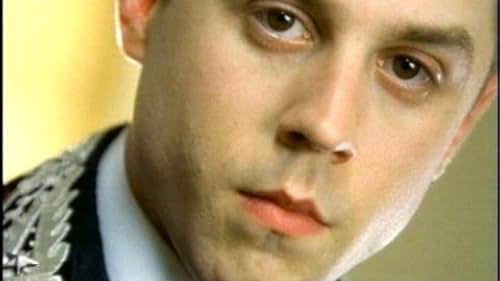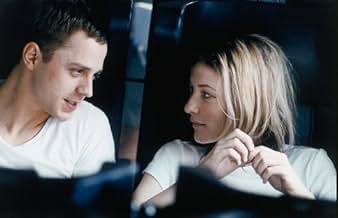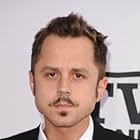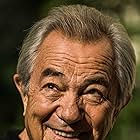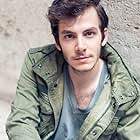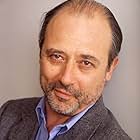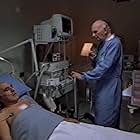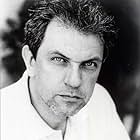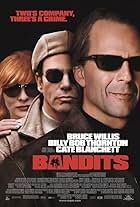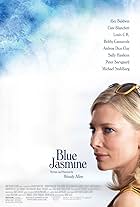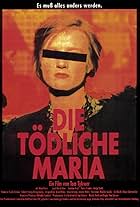A woman takes the law into her own hands after police ignore her pleas to arrest the man responsible for her husband's death, and finds herself not only under arrest for murder but falling i... Read allA woman takes the law into her own hands after police ignore her pleas to arrest the man responsible for her husband's death, and finds herself not only under arrest for murder but falling in love with an officer.A woman takes the law into her own hands after police ignore her pleas to arrest the man responsible for her husband's death, and finds herself not only under arrest for murder but falling in love with an officer.
- Awards
- 6 wins & 7 nominations
Storyline
Did you know
- TriviaCate Blanchett jumped at the chance of shaving off her hair for the film, finding the experience to be very liberating.
- GoofsCrewmembers are briefly reflected in the front of a train as we see the main characters walk away from the train. Specifically, look for a man in a red tee-shirt.
- ConnectionsFollowed by L'enfer (2005)
- SoundtracksFür Alina
Composed by Arvo Pärt
Performed by Alexander Malter (piano)
Produced by Manfred Eicher
ECM New Series
Courtesy of Universal Edition, Vienna
Featured review
"How high can I fly", is the question Filippo (Giovanni Ribisi) asks during a helicopter flight simulation at the onset of Heaven, the latest film by Tom Tykwer, a question that does not become relevant until the end. Heaven raises the question of ends and means, specifically -- does a worthy end justify unacceptable means? It explores the answer in what is essentially an allegory about responsibility, transformation, and transcendence. Heaven was to be the first part of a trilogy by the late Polish director Kristov Kieslowski called Heaven, Purgatory, and Hell. Kieslowski, however, died in 1996 and was unable to complete it and the task of completion was given to Tykwer. Heaven merges the technical, fast-paced prowess of Tykwer with the slower-paced sublime poetics of Kieslowski and the result was, for me, a strange but deeply spiritual experience.
In Turin, Philippa Paccard (Cate Blanchett) an English teacher attempts to get even with an Italian drug dealer who caused one of her students to commit suicide. In trying to destroy what she perceives to be evil, she plants a bomb in his office wastebasket but the plan is thwarted and she inadvertently kills four innocent people in an elevator. Meanwhile, the drug dealer, Vendice is not harmed. Later when Philippa realizes the consequences of her actions and breaks down sobbing during an interrogation, she is comforted by carabinieri, Filippo (Giovanni Ribisi), who is in the room as her translator (she insists on testifying in English). Filippo is deeply attracted to the defendant and believes in her innocence. Together they formulate an escape that leads them to another act of revenge and finally into hiding in the Italian countryside where they become fugitives in the town of Montepulciano.
The film then shifts from a gritty reality-based drama to a dream-like poem about lovers on the run. Contrary to what one would expect, the lovers are totally calm and peaceful and resigned to their fate. The countryside where they are hiding is bathed in a glow that soaks everything in an ethereal light. Looking like innocent children out on a Halloween night, Philippa and Filippo identify with each other by shaving their heads and wearing identical clothes. The cinematography is wondrous. One of the most beautiful scenes is a faraway shot of the horizon and two shadowy figures coming together in silhouette next to a huge tree. I will never forget the radiance of Blanchett and the beatific look of love on the face of Ribisi.
On the surface, Kieslowski seems to be telling us that we are at the mercy of a capricious universe. We try to do good and we end up doing wrong. We have excellent plans but do not foresee the consequences. Underneath this, however, is Kieslowski's vision that everything happens for a purpose, one that only God is aware of. There is little dialogue, only hushed silence and passionate glances. "Heaven is about silence," Tykwer tells The New York Times. "But all the silences have ten layers".
The film to me does not justify criminal acts. Rather, it says that while some of us may commit acts that are reprehensible no matter how worthy our motives, all of us can ultimately achieve transformation. As director Tom Tykwer put it, `The film (Heaven) is about redemption, basically the concept that love can help us find our true perspectives and our true meanings. This is not about God being somewhere else, but in ourselves and what a gift that is." In an ending that is transforming for both the characters and the viewer, the two lovers take responsibility for their actions and surrender, in Beckett's phrase, to "the benign indifference of the universe". The meaning of the opening helicopter scene then becomes clear in an ascending epiphany of grace.
In Turin, Philippa Paccard (Cate Blanchett) an English teacher attempts to get even with an Italian drug dealer who caused one of her students to commit suicide. In trying to destroy what she perceives to be evil, she plants a bomb in his office wastebasket but the plan is thwarted and she inadvertently kills four innocent people in an elevator. Meanwhile, the drug dealer, Vendice is not harmed. Later when Philippa realizes the consequences of her actions and breaks down sobbing during an interrogation, she is comforted by carabinieri, Filippo (Giovanni Ribisi), who is in the room as her translator (she insists on testifying in English). Filippo is deeply attracted to the defendant and believes in her innocence. Together they formulate an escape that leads them to another act of revenge and finally into hiding in the Italian countryside where they become fugitives in the town of Montepulciano.
The film then shifts from a gritty reality-based drama to a dream-like poem about lovers on the run. Contrary to what one would expect, the lovers are totally calm and peaceful and resigned to their fate. The countryside where they are hiding is bathed in a glow that soaks everything in an ethereal light. Looking like innocent children out on a Halloween night, Philippa and Filippo identify with each other by shaving their heads and wearing identical clothes. The cinematography is wondrous. One of the most beautiful scenes is a faraway shot of the horizon and two shadowy figures coming together in silhouette next to a huge tree. I will never forget the radiance of Blanchett and the beatific look of love on the face of Ribisi.
On the surface, Kieslowski seems to be telling us that we are at the mercy of a capricious universe. We try to do good and we end up doing wrong. We have excellent plans but do not foresee the consequences. Underneath this, however, is Kieslowski's vision that everything happens for a purpose, one that only God is aware of. There is little dialogue, only hushed silence and passionate glances. "Heaven is about silence," Tykwer tells The New York Times. "But all the silences have ten layers".
The film to me does not justify criminal acts. Rather, it says that while some of us may commit acts that are reprehensible no matter how worthy our motives, all of us can ultimately achieve transformation. As director Tom Tykwer put it, `The film (Heaven) is about redemption, basically the concept that love can help us find our true perspectives and our true meanings. This is not about God being somewhere else, but in ourselves and what a gift that is." In an ending that is transforming for both the characters and the viewer, the two lovers take responsibility for their actions and surrender, in Beckett's phrase, to "the benign indifference of the universe". The meaning of the opening helicopter scene then becomes clear in an ascending epiphany of grace.
- howard.schumann
- Nov 3, 2002
- Permalink
- How long is Heaven?Powered by Alexa
Details
- Release date
- Countries of origin
- Official site
- Languages
- Also known as
- Рай
- Filming locations
- Production companies
- See more company credits at IMDbPro
Box office
- Budget
- $11,000,000 (estimated)
- Gross US & Canada
- $784,399
- Opening weekend US & Canada
- $51,909
- Oct 6, 2002
- Gross worldwide
- $4,251,037
- Runtime1 hour 37 minutes
- Color
- Sound mix
- Aspect ratio
- 1.85 : 1
Contribute to this page
Suggest an edit or add missing content


